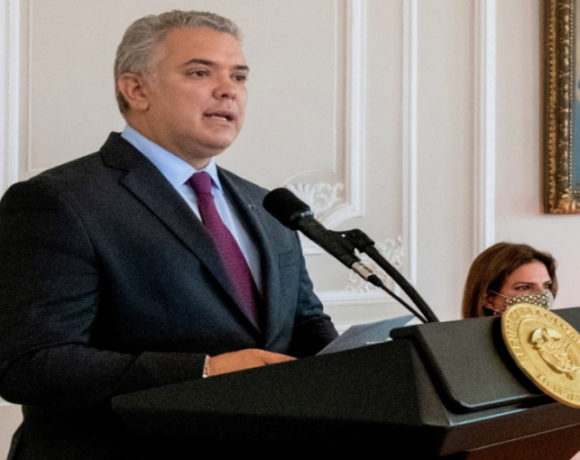President Duque Signs 2020 National Tax Law; Favors Lower-Income Groups, Jobs Growth

Colombia President Ivan Duque on December 27 signed into law a new national tax bill that mainly helps lower-income people and incentivizes job growth in legal industries.
The new law “seeks to continue promoting economic development and creates the basis for reducing inequality and closing income gaps in the country,” according to the official press statement following the President’s signing.
The measure would generate an estimated COP$13.5 trillion (US$4.1 billion) in new revenue in 2020, via income taxes on people with relatively high incomes; a surcharge on the financial system; and a multi-phase VAT (value-added tax) on beer and soft drinks, according to the summary.
“Normalization” measures in the bill would generate COP$5.3 trillion (US$1.6 billion); while economic growth stimulation measures would result in another COP$3.2 trillion (US$971 million). Furthermore, a new electronic tax-billing-and-collection system is expected to raise another COP$5 trillion (US$1.5 billion), according to the summary.
The full text of the new law (in the original Spanish) is available here: https://dapre.presidencia.gov.co/normativa/normativa/LEY%202010%20DEL%2027%20DE%20DICIEMBRE%20DE%202019.pdf
“This legislation links social programs such as the VAT refund for 2.8 million low-income households, plus three days without VAT per year, the reduction in [individual] health [insurance] contributions from 12% to 4% for pensioners and vulnerable populations, plus incentives to companies that create jobs for young people between 18 and 28 years.”
“This reform will allow us to continue increasing resources for education, for health, for household improvements, and for bringing clean drinking water supplies to the most vulnerable areas of our country,” added President Duque.
The measure, officially dubbed the “Economic Growth Law,” contains measures that will continue to boost the growth of Colombia’s Gross Domestic Product (GDP) and foreign direct investment (FDI), hence creating more jobs in the “formal” (legal, taxable) economic sectors.
The new law also establishes income-tax benefits for large, medium, small and micro enterprises, as well as VAT discounts for imported capital goods “in order to reduce costs so that the business sector is modernized more quickly and becomes more cost-competitive,” according to the press summary.
The law also includes a mechanism by which compliance with the tax obligations of micro- and small businesses are simplified.
Another provision includes nearly COP$2 trillion (US$607 million) received from financial-sector taxes for upgrading rural, tertiary roads — in order to improve logistics in many of Colombia’s remotest regions, as noted by the Transport Ministry.
















